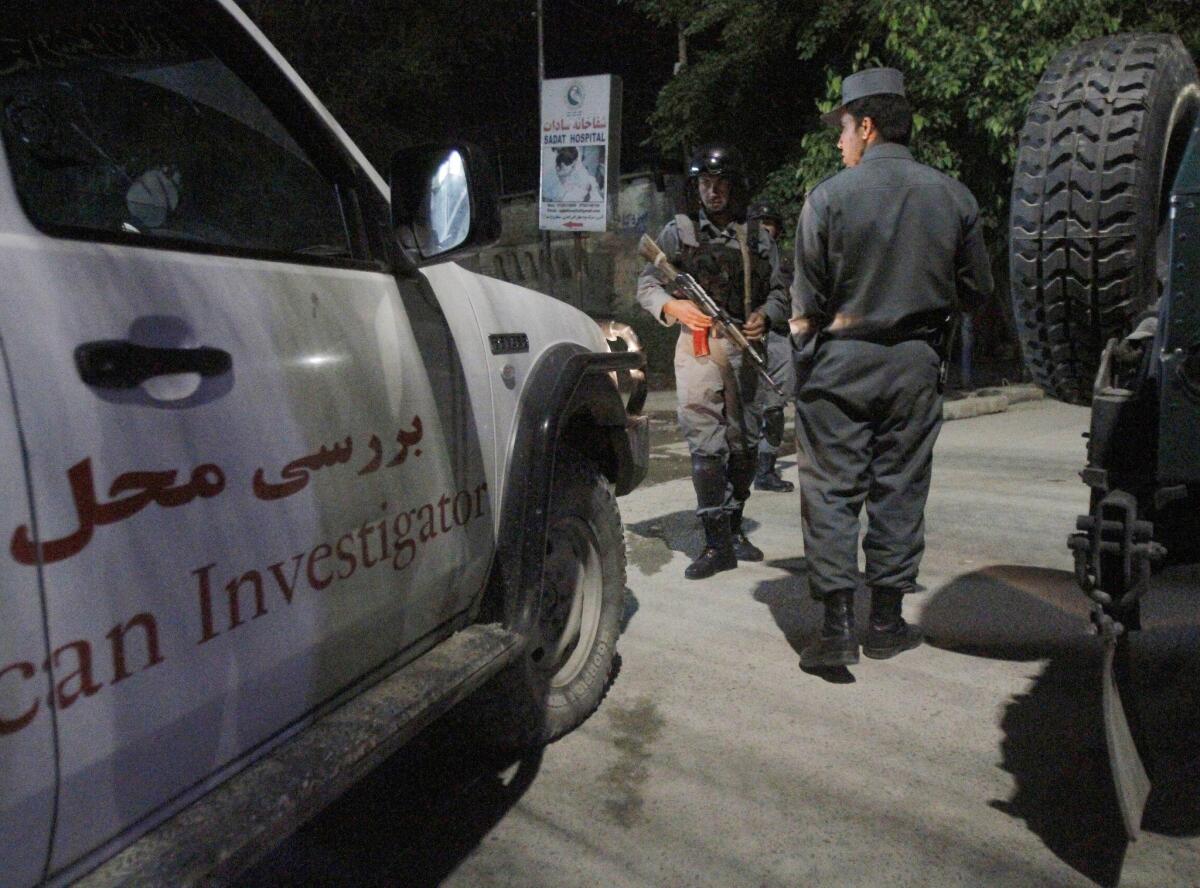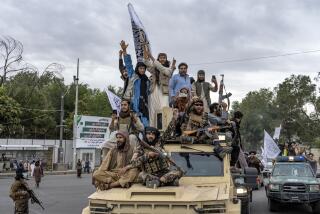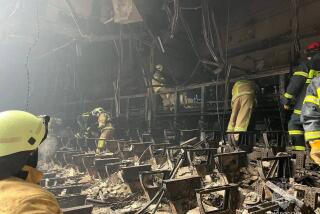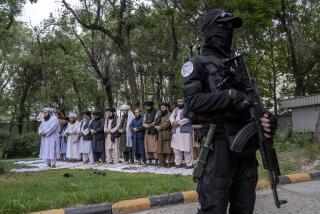American, 8 other foreigners among 14 killed in attack on Kabul guesthouse

Afghan security forces inspect the site of an attack on a Kabul guesthouse on May 14.
As his conversations with three foreign associates came to an end, Zaher Moein excused himself from the table and headed toward a concert in another hall of Kabul’s Park Palace hotel and guesthouse.
Moein, 30, had stopped in the hotel’s courtyard to bask in the cool spring air for a few moments when he heard an explosion. He was immediately directed to a nearby bunker on the hotel grounds, where he would spend the next three hours alone in darkness.
“I couldn’t even see the door handle to lock it, so I ran to the farthest end, hoping no one would find me,” he said.
From inside he heard sporadic gunfire and the shouts of other guests, victims of an attack by a gunman who officials said Thursday killed at least 14 people: an American, eight other foreigners and five Afghans. The gunman held several people hostage Wednesday night and engaged in a standoff with Afghan security forces that lasted nearly seven hours.
The incident was the latest assault by Taliban insurgents on a Kabul locale frequented by foreigners. The Park Palace, which is surrounded by blast walls and is guarded by private security, is a guesthouse commonly used by foreigners based in Kabul, including aid workers, consultants and journalists.
Although Westerners have used the hotel, the staff said it had recently been more popular with Indians and Pakistanis.
Ahmad Zia Massoud, a special advisor to Afghan President Ashraf Ghani, said the attack was aimed at the Indian ambassador to Kabul, Amar Sinha, who the assailant mistakenly believed was on the premises.
But the Taliban said it had sent a lone gunman armed with an automatic rifle and explosives to target a performance by Altaf Hussain, a well-known Afghan singer.
The assault was a warning to nations that back the Afghan government, a Taliban spokesman said. “Occupying forces should realize that they are not safe from our attacks under any cover or in any location.”
Amnesty International criticized the Taliban for showing “contempt for human life” and signaling that the arrival of warmer weather in Afghanistan, which typically coincides with increased violence, could be particularly deadly this year.
“This atrocious attack on a well-known hotel in central Kabul is a worrying sign that the Taliban’s spring offensive is in full swing, putting civilians at heightened risk of death and injury,” said a statement by Horia Mosadiq, Amnesty International’s Afghanistan researcher.
The U.N. mission in Afghanistan said it had documented a record number of civilian casualties — nearly 1,000 killed and 2,000 injured — over the first four months of the year, a 16% increase from the same period in 2014.
“These deliberate attacks on civilians are atrocities,” said Georgette Gagnon, the U.N. mission’s human rights director. “Taliban statements on avoiding civilian casualties ring hollow when we set them against the latest killings.”
U.S. Embassy officials confirmed that an American was among the dead, but did not offer details.
All three of the foreigners Moein was meeting — a Kazakh national, her Italian husband and a Briton — were killed. The five Afghan victims, including a woman, had not been identified. Two Pakistanis were reportedly killed.
Many Afghans wondered how one man could make it through several rounds of security checks, hold dozens hostage and engage in a long standoff with police. Some theorized that he had previously been inside the building, and may even have been staying in the hotel.
Other high-profile hotels and restaurants in Kabul began ramping up security. By late afternoon Thursday, cars full of luggage and personal effects were exiting from the Park Palace’s gates.
In a convenience store across the street from the hotel, a member of the hotel’s security staff stopped by for an energy drink.
“I hope they shut [the hotel] down,” he said, requesting anonymity for safety’s sake. He said his monthly salary of about $130 “isn’t worth risking our lives.”
Special correspondent Latifi reported from Kabul and Times staff writer Bengali from Mumbai, India.
Follow @SBengali on Twitter for news out of South Asia
More to Read
Sign up for Essential California
The most important California stories and recommendations in your inbox every morning.
You may occasionally receive promotional content from the Los Angeles Times.










